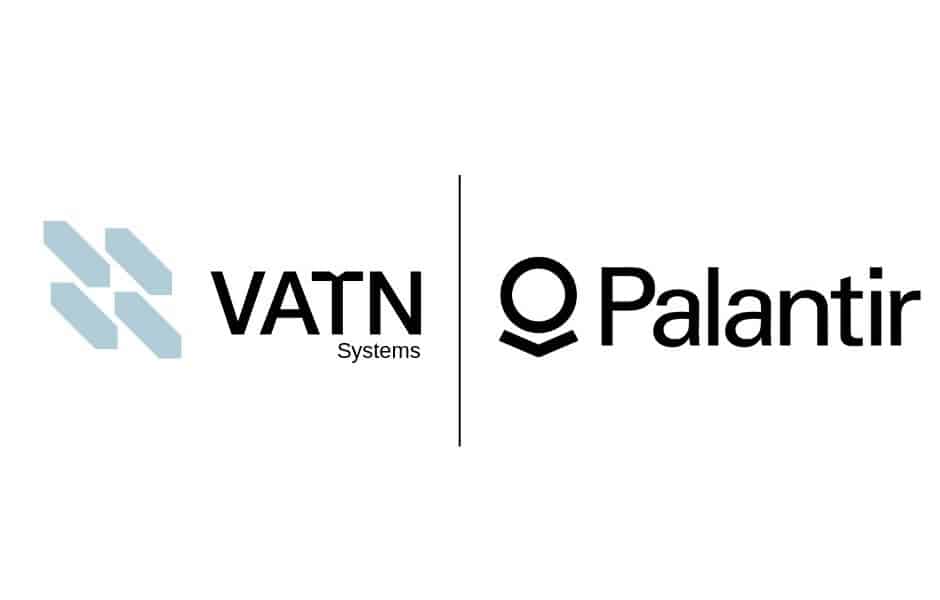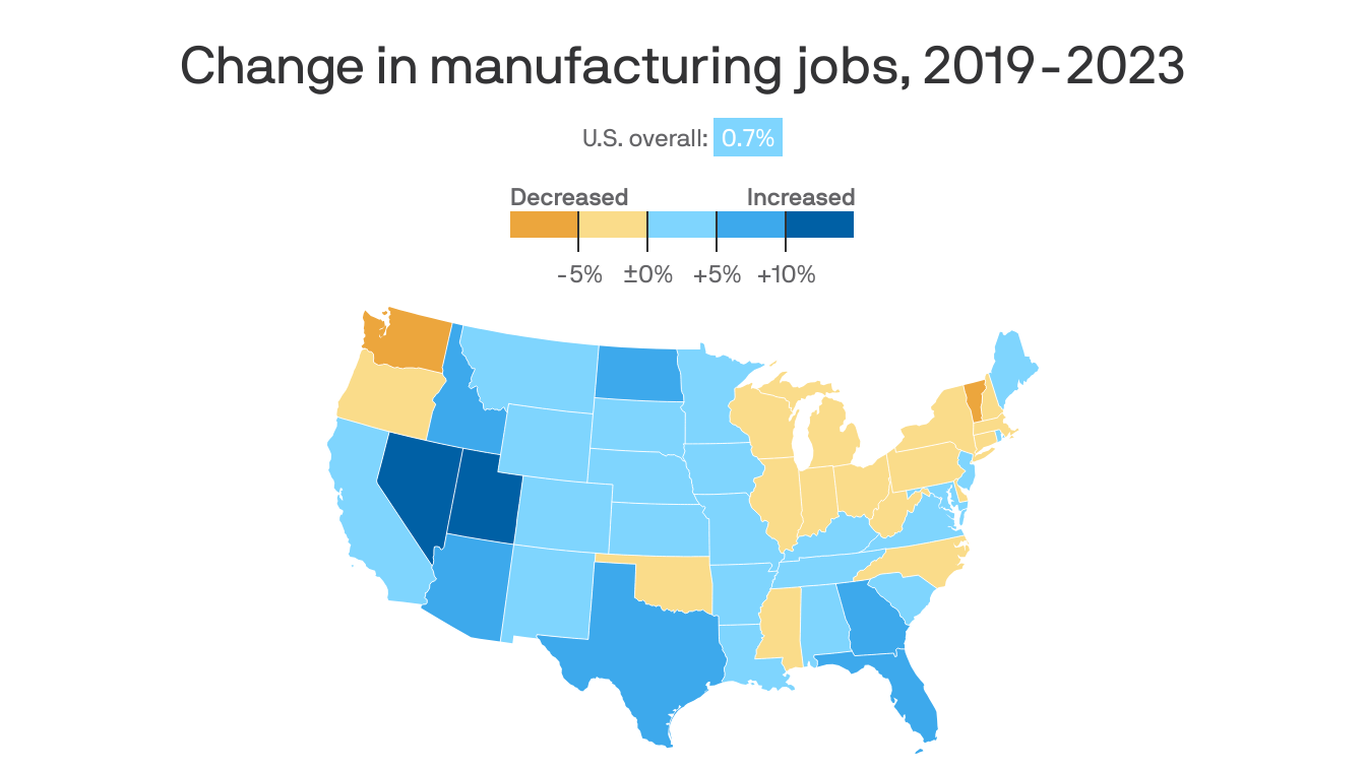Yemen Strikes Back: 15 US Arms Manufacturers Face Unprecedented Sanctions Hammer
Manufacturing
2025-04-20 22:11:10Content

In a bold diplomatic move, Yemen has imposed sanctions on 15 prominent U.S. weapons manufacturing companies, directly targeting firms that have been supplying arms to Israel during its ongoing military operations in Gaza. The government's decisive action comes as a strong condemnation of what it describes as complicity in potential humanitarian violations.
The sanctions represent Yemen's stance against the military support that enables what the Yemeni government characterizes as genocidal actions against Palestinian civilians. By specifically targeting weapons manufacturers, Yemen is sending a clear message about its opposition to the conflict and its commitment to holding international actors accountable.
These sanctions highlight the growing international criticism of Israel's military campaign in Gaza and underscore the diplomatic tensions surrounding the ongoing conflict. The move by Yemen demonstrates the broader global response to the humanitarian crisis unfolding in the region, signaling solidarity with Palestinian civilians and challenging the military industrial complex that supports prolonged military interventions.
While the practical immediate impact of these sanctions remains to be seen, they symbolize a significant diplomatic statement from Yemen, drawing international attention to the complex geopolitical dynamics of the Israel-Gaza conflict.
Yemen Takes Bold Stand: Sanctioning US Weapons Manufacturers Over Gaza Conflict
In an unprecedented diplomatic move that signals growing international condemnation of the ongoing conflict in Gaza, Yemen has emerged as a vocal critic by implementing strategic economic measures against weapons manufacturers supporting Israeli military operations. This decisive action represents a significant escalation in diplomatic pressure and highlights the complex geopolitical tensions surrounding the humanitarian crisis.A Powerful Statement of Solidarity and Accountability
Diplomatic Repercussions and Global Implications
The Yemeni government's decision to impose sanctions on 15 prominent United States weapons manufacturing companies represents a multifaceted strategy of economic and political resistance. By targeting the financial infrastructure that supports military equipment production, Yemen is sending a powerful message about accountability and international humanitarian principles. These sanctions are not merely punitive measures but a sophisticated diplomatic instrument designed to challenge the global arms trade and draw international attention to the ongoing conflict in Gaza. The selected companies, carefully identified through comprehensive research and strategic analysis, have been directly implicated in supplying military equipment potentially used in controversial military operations. This targeted approach demonstrates Yemen's commitment to leveraging economic mechanisms as a form of diplomatic pressure, challenging the traditional paradigms of international conflict resolution.Economic and Geopolitical Dynamics of Weapons Manufacturing
The complex ecosystem of international arms trade involves intricate networks of manufacturers, government contracts, and geopolitical relationships. Yemen's sanctions expose the underlying economic mechanisms that sustain military conflicts, revealing how weapons manufacturing transcends mere industrial production and becomes a critical component of global political strategies. By specifically targeting US-based companies, Yemen is challenging the long-standing military-industrial complex that has historically supported Israeli military capabilities. This approach represents a nuanced understanding of economic diplomacy, where financial constraints can potentially influence military decision-making and international relations.Humanitarian Perspective and International Law
The sanctions are fundamentally rooted in humanitarian concerns, reflecting growing global awareness about the devastating consequences of prolonged military conflicts. Yemen's action aligns with emerging international legal frameworks that increasingly scrutinize the role of weapons manufacturers in potential human rights violations. The government's stance suggests a broader interpretation of corporate responsibility, arguing that weapons manufacturers are not merely passive suppliers but active participants in potential humanitarian crises. This perspective challenges traditional notions of corporate neutrality and demands a more ethical approach to international arms trade.Potential Ripple Effects and International Response
Yemen's bold diplomatic maneuver is likely to stimulate significant international discourse and potentially inspire similar actions by other nations sympathetic to the Palestinian cause. The sanctions represent more than an isolated political statement; they are part of a growing global movement demanding accountability and transparency in military industrial complexes. Potential consequences could include increased diplomatic tensions, potential retaliatory measures, and heightened scrutiny of international arms trade practices. The global community will be closely monitoring the potential domino effects of Yemen's strategic intervention.Technological and Ethical Dimensions of Arms Manufacturing
The sanctions also raise critical questions about the ethical dimensions of technological innovation in weapons manufacturing. As advanced technologies increasingly enable more precise and potentially devastating military capabilities, the moral responsibilities of manufacturers become increasingly complex and contentious. Yemen's action challenges the technological-industrial narrative, suggesting that technological capability must be accompanied by robust ethical frameworks and genuine consideration of humanitarian consequences.RELATED NEWS
Manufacturing

Manufacturing Mobilization: NJ Business Leaders Rally to Boost State's Industrial Backbone
2025-04-26 01:59:58
Manufacturing

Revolutionary Catalyst Breakthrough: How Palladium and Gallium Are Rewriting Chemical Manufacturing Rules
2025-03-29 18:00:01
Manufacturing

Underwater Tech Giants Join Forces: Vatn Systems and Palantir Revolutionize Autonomous Underwater Vehicle Production
2025-04-20 11:46:11





